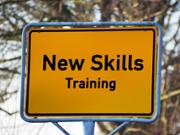| News for HR information management professionals | SIGN UP ⋅ SHARE |
|
|
 
| Innovation In HR Technology |
| |
 |
| (Supatman/Getty Images) |
Payroll software can enhance HR efficiency by automating wage calculations, tax filings and compliance management. The software can reduce manual errors, administrative workload and compliance risks, and can provide actionable payroll data for better workforce planning and budgeting. Key factors to consider when selecting payroll software include scalability to accommodate future expansion, integration capabilities with existing HRIS, benefits and time-tracking platforms, intuitive usability for both HR and employees, the quality of vendor support and transparent pricing.
|
|
|
|
|
AI is transforming retail, but most retailers are unprepared. Join EPAM, Stripe, and commercetools on November 12 at 12 PM EST to learn how AI is redefining the shopper journey and why composability is key to responsible adoption. Register now to build an AI-ready commerce foundation. |
|
|
|
|
|
 
|
Job seekers facing a tough employment landscape are increasingly using dating apps like Tinder and Bumble to expand their professional networks. Users are leveraging familiar, informal environments to connect with professionals, often crafting profiles that highlight their skills and career aspirations. This unconventional strategy has gained popularity as traditional networking avenues become saturated and less effective. Of those who used dating apps for professional purposes, 88% successfully connected with someone, 43% received mentorship or advice, 39% landed interviews, 37% obtained job leads or referrals and another 37% secured job offers, according to ResumeBuilder.com's survey.
|
|
|
|
|
The holiday rush is coming—and checkout friction can cost you sales. Join Salesforce and PayPal's experts to learn how top SMB and enterprise merchants are turning checkout into a conversion machine. Register now! |
|
|
|
|
|
 
| Engagement And Management Technology |
|
The rapid adoption of AI in the workplace is reshaping the workforce, as companies increasingly link job security to employees' ability to embrace new technology. Some executives have made it clear that those who do not reskill or adapt to AI risk layoffs or demotion. The shift is driven by the belief that AI is essential for business survival and competitiveness, resulting in workforce reductions and the strategic hiring of AI specialists. Some employees are concerned about the pace and breadth of these changes.
|
|
|
Open enrollment often overwhelms employees with dense benefits information, but weaving humor and storytelling into messaging can make the information more engaging and relevant, says Tara Davis, senior director of internal communications at The American Psychological Association. Creative campaigns, such as themed videos, playful takes on confusing terminology and "choose your own adventure" playbooks, lead to higher engagement and more clicks on reminders, Davis says.
|
|
|
| Free eBooks and Resources |
|
 
|
Employees are increasingly "gatekeeping" knowledge due to fears of being replaced by AI, according to a report by Adaptavist that surveyed 4,000 workers in four countries. The report urges employers to incentivize knowledge sharing, identify opportunities for upskilling employees, and foster a safe environment for open collaboration to mitigate these risks.
|
|
|
Employees say management often falls short in change management, leading to less effective results and lower return on investment, according to Eagle Hill's 2025 Change Management Survey. While 63% of respondents said their workplaces had undergone significant changes in the past year, only a third felt these changes were worth the effort.
|
|
| |
 |
| (Pixabay) |
The US Department of Labor has awarded Connecticut an $8 million Industry-Driven Skills Training Funds grant to enhance worker training programs in high-demand industries such as manufacturing, health care and information technology. The grant will fund on-the-job training and apprenticeship programs, with each of the state's five workforce development boards receiving $1.5 million to support these initiatives.
|
|
|
| | |
